Evaluation
Hcéres publishes the ANR evaluation report
Published on
On Thursday 28 November, Hcéres published the evaluation report on the French National Research Agency (ANR), covering the 2014-2018 period. Drafted by a panel of international experts, this report provides analysis and recommendations on the ANR’s institutional positioning and strategy, its governance and its various activities.
As the French agency for project-based research funding, the ANR is also tasked by the government with managing and monitoring the implementation of actions for the Investments for the Future Programme (PIA) in the field of higher education and research (calls for projects, selection, contractual agreements and evaluation).
“In a context of significant constraints, the progress made by the ANR largely corresponds to the recommendations made in the previous evaluation”, notes the panel of experts chaired by Rémi Quirion, a neuroscientist (Douglas Institute) and Chief Scientist of Quebec, in the conclusion of this report.
Based on a self-evaluation report deemed to be “sincere” and on various meetings (internal interlocutors, representatives of the main French and foreign partners, beneficiaries of ANR-funded projects), the panel underlines “the excellence and professionalism of the agency's programming and research evaluation processes”, as well as “the recognition it enjoys among its partners in France and abroad”.
Finally, the panel considers that the ANR has many assets that can help it to address the issues raised in the recommendations it has made:
- Increase the selection rate in all programmes very significantly while maintaining a high level of support per project. Particular attention must be paid to young researchers.
- Strive to articulate the agency’s missions and values more precisely by developing a medium and long-term vision. Ensure that this vision and the values on which it is based are firmly embedded within the agency (from its staff through to its Governing Board).
- Clarify the mandate given to the ANR and the risks associated with it (simplification of content and clearer objectives) in the contract of agreed objectives and performance, while ensuring that it is consistently interpreted by staff and the president, and by including a precise description of the resources required for its implementation.
- In terms of governance, ensure better sharing of the Quality policy by the Governing Board and improve its internal monitoring: make the scientific steering committee a fully-fledged strategic body; consider setting up an audit committee to ensure optimal management of all the agency's financial resources.
Improve the anticipation and programming of risk management by creating a risk management committee under the President and reporting to the Governing Board, to ensure better coverage of the risks that the ANR may face (budgetary contingencies, HR issues, variable tender success rates, complex links with the external environment, political and societal dynamics, etc.).
- Consolidate and perpetuate the internal dynamics of working groups and continue to expand the scope of research integrity, ethics, gender equality and responsible conduct in research in which the agency should become a world leader.
- Make impact assessment a key project by drawing on the best international expertise in this field, generating databases without delay and prioritising five-year ex post analyses of topics.
- Strengthen internal and external communication by improving reporting both to government authorities and the general public on the results achieved and building on the successes of the different programmes to create this 360-degree communication strategy.
Taking account of these recommendations in his letter of comments, Thierry Damerval, President and CEO of the ANR, distinguishes between recommendations that he considers “should be taken into account immediately”, and those “requiring in-depth analysis and consultation”.
The results of this evaluation will contribute to the ANR's discussions with the Ministry for Higher Education, Research and Innovation in the perspective of the next Research Programming Law.
Find out more
- Dowload the ANR evaluation report
-
Key figures for the ANR in 2019
− intervention budget for project-based research funding: €708 million
− Investments for the Future Programme (PIA): nearly €26 billion.The ANR has an operating budget of €36 million and 278 staff working on an annual FTE (full-time equivalent) basis.
1 The previous evaluation of the ANR was carried out by the French Agency for Evaluation of Research and Higher Education (AERES) in September 2012.



